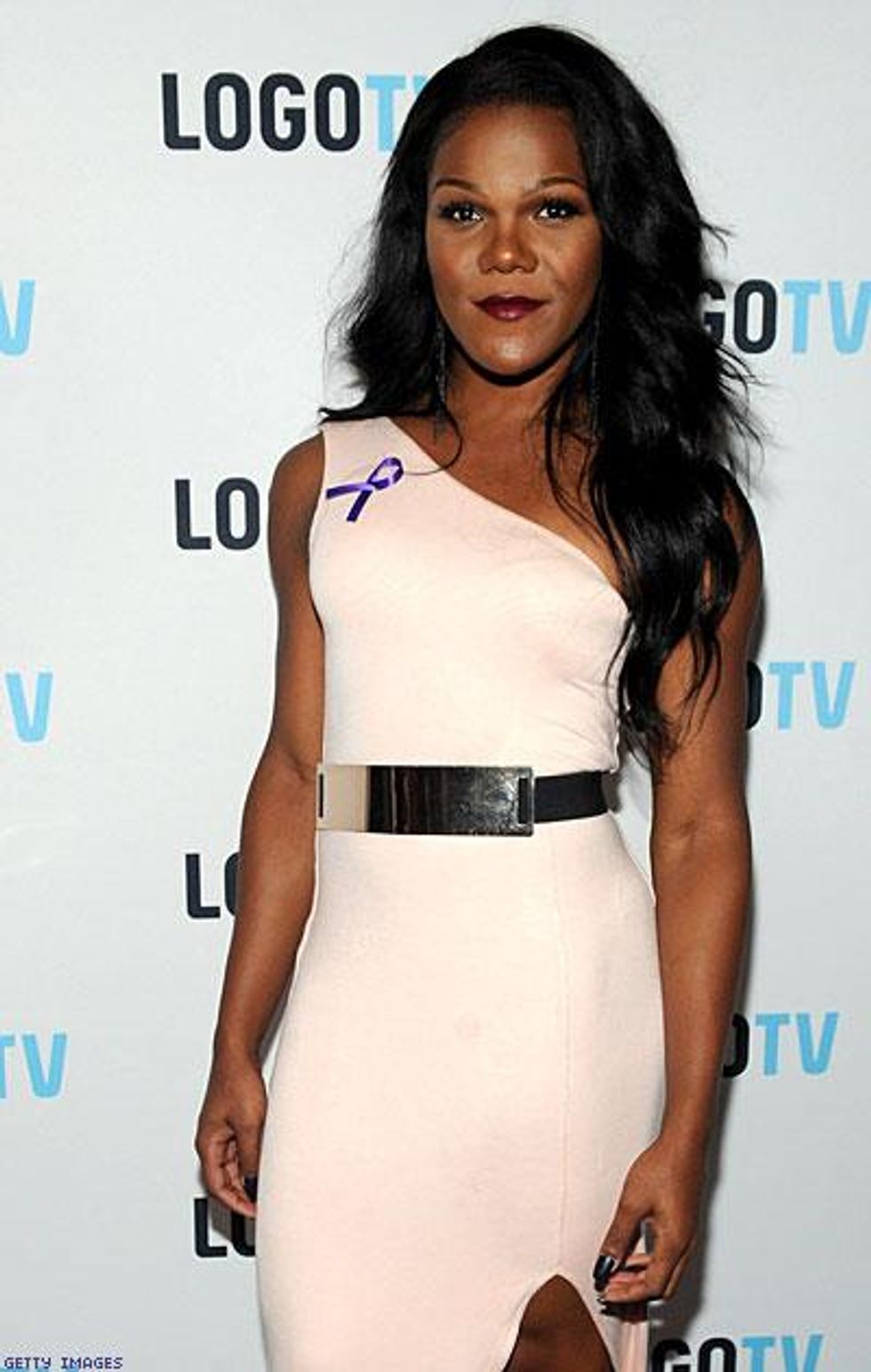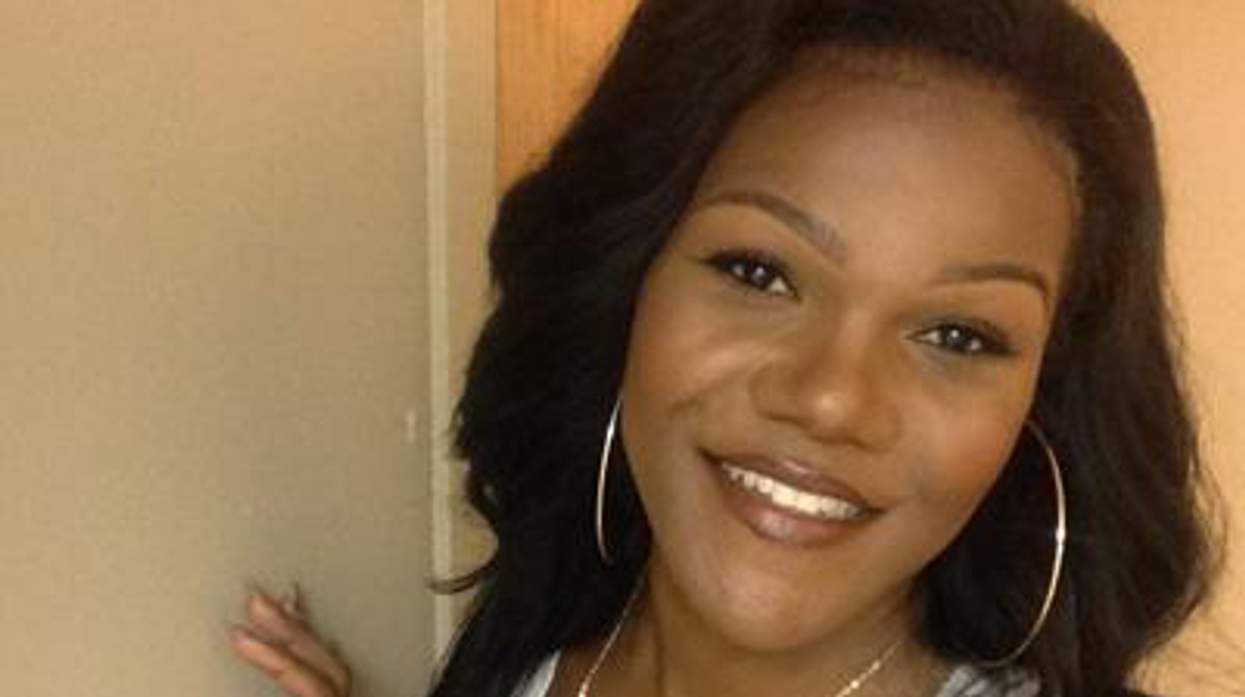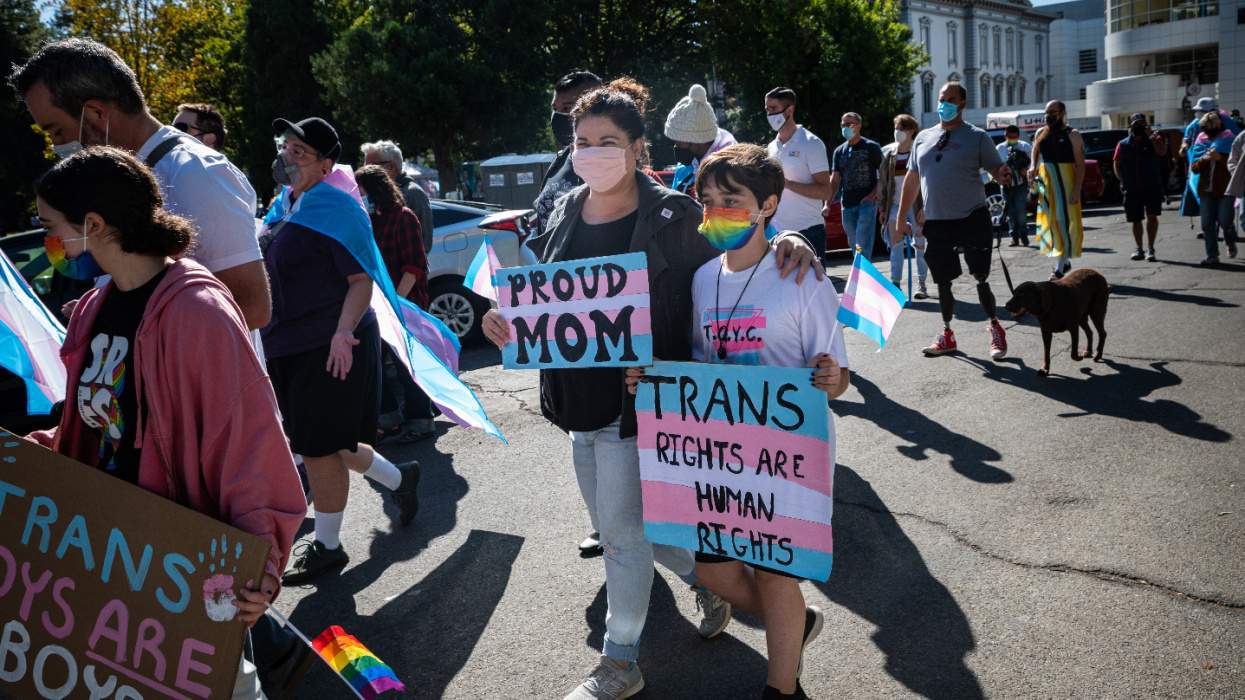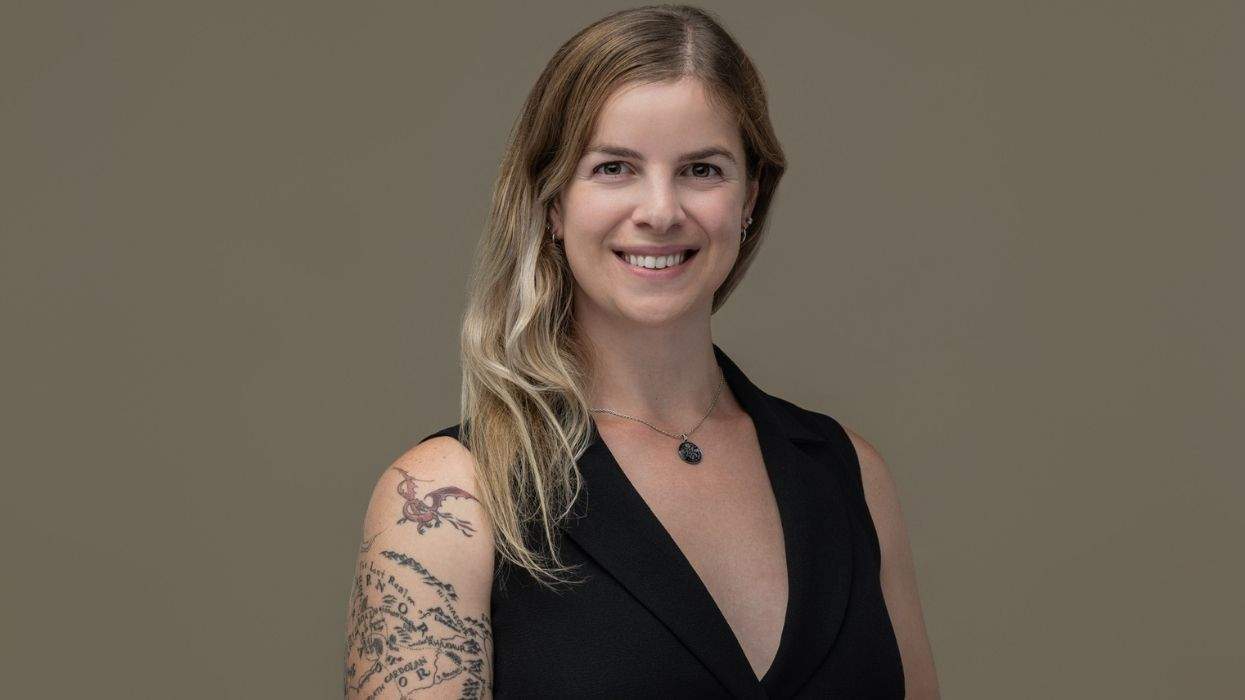While many audiences consider Laverne Cox's acting career her shining accomplishment, Cox is also revered by trans communities for her less glamorous, but incredibly vital, behind-the-scenes work: Elevating the voices of trans women of color.
This is perhaps most evident in her work as a producer. In the past year alone, Cox has been hard at work coproducing Free CeCe, a documentary on the story of formerly imprisoned trans woman of color and Advocate 40 Under 40 honoree CeCe McDonald, and even more recently in executive producing the MTV and Logo documentary Laverne Cox Presents: The T Word.
In the documentary, Cox is intentional about providing a platform for the experiences of young trans women of color, and provides a particularly memorable spotlight on budding social justice blogger and activist L'lerret Jazelle Ailith.
A New Orleans-based college student, Ailith shines in The T Word as she articulately discusses the unique issues trans women of color face. The Advocate caught up with her to learn more about her activism, her part in The T Word, and her thoughts on community, solidarity, and Cox's influence.
The Advocate: In The T Word, you tell some memorable stories about Youth BreakOUT!, a group you do activist work with. Can you tell us more about what BreakOUT! does?
L'lerret Jazelle Ailith: BreakOUT! is an LGBT organization in New Orleans, but we center trans women of color. What we specifically do is fight criminalization of LGBT individuals.
New Orleans has a really intense problem with police basically stopping anyone who looks "suspicious." Basically, they don't think we know our rights, and they take advantage of that. They treat LGBT people -- especially trans women of color -- like we are inherently criminals.
A lot of trans women [find themselves] locked up in prison, in solitary confinement, or put in prisons with men -- [placed] in very dangerous situations. And there's no one to advocate for them, no one to fight for them. So BreakOUT! was formed a couple years ago so, for one, girls can come together and find community. That's actually how I started, because I needed a community; I needed girls like me. So we come together, find community, and build solidarity.
We [also] work to hold demonstrations, create pamphlets and [materials] like that, go talk to the sheriff, the people in charge of the New Orleans Police Department, and talk to the homeless shelters so that they can be more trans-inclusive [in their policies]. And we help the young people who are currently incarcerated: give them some support and whatever help they need to fight for their rights.

I'm also a blogger, writing about social justice issues and trans issues. Laverne had spoken at the Creating Change Conference; I wasn't present [there], but I caught the online stream and I cried while watching it. It was the first time I'd actually seen [her give] a full speech and it was so transformative for me. So I wrote a blog post called "Thank You, Laverne," thanking her for just being herself and for living visibly, authentically, and unapologetically. For showing me that I could do the same thing and achieve some type of happiness. And for not only using her platform for herself, but for extending it out to other people -- it just really inspired me.
So I wrote a blog post thanking her, and she loved it. She reposted it on all her social media sites, and then reached out to BreakOUT! She was supposed to speak at Tulane University at the beginning of 2014, and we asked if she could come to BreakOUT! to talk to the girls and build some community and solidarity with all of us. And she totally did! It was just a wonderful experience with pictures, everyone getting to know her -- so cute.
She contacted me a couple weeks later, asking me if I would be interested in being involved in a project to help with the [trans rights] movement, and of course I was on board.
Laverne Cox talks about how simply walking down the street as a trans woman of color can invite a kind of criminalization that other people don't experience. From watching The T Word, I see you speak to the same issues.
This is a story I tell, and I've told it to Laverne too:
Before you can start the whole hormone process, you have to start seeing a therapist. And I did see a therapist, and what I found was intriguing. After about four months of therapy, he basically told me that I was not eligible to begin hormone replacement therapy because [my] psychoanalysis came back that I was borderline crazy, borderline paranoid. He said that his reasoning was that I was too aware of my surroundings, too aware of myself. And when I asked him if he's ever worked with a trans woman of color before, he said [he hadn't]. He'd worked with upper-class white women.
I think it's really important to note that socio-economic status... really affects how you relate to the world, and the microaggressions that you come across. So as a black trans woman -- a black woman -- our bodies are sexualized in ways that other people aren't sexualized. Especially in New Orleans. Walking around here as a black trans woman, basically you have a sign on your head saying, "I do sex work! I'm prostituted!" That's what everyone thinks, and that's what everyone sees. So they force you to have to watch how you walk, watch where you go, watch what time of the night you're out, watch what you wear. So that's problematic; that's an issue.
We should not have to get to a place where we're living authentically as ourselves but then be hyper-policed. So the fact that we were able to broadcast that in the documentary, to show that trans women of color are disproportionately criminalized and policed -- especially in New Orleans -- I think that's really important. It'll bring up conversations that a lot of people aren't having about how different identities can affect different people in different ways.
We have commonality in being transgender people within the trans community. But, Laverne always says this: she came from a working-class background. Being a trans person from the working class, being a black trans woman, being a trans person of color -- the issues and microaggressions that [such] individuals face are totally different [than others]. We get to shed light on that so that we can further critique the system and work towards equity.
What kind of impact do you see The T Word having on its young audience?
The main reason why I decided to join this project was because I knew how much it would impact individuals who were not comfortable with authentically being themselves, or weren't comfortable with accepting the identity that they hold, that they're struggling with. Because I know that for myself, a few years ago, when I was trying to figure out who I was and I was questioning my place in the world, I stumbled across Laverne Cox on Youtube when she first started being really visible and vocal. I was watching her interviews, and that really inspired me -- just seeing somebody that looked like me and hearing her stories sounding like mine.
Laverne always says that the "retelling" is super important -- it's revolutionary. It totally is. Hearing someone articulate their struggle, or even their triumph, when they look like you and they're representing you, you get to see that there's possibilities in the world. That's really wonderful.
What I think is great about my portion [in The T Word] is that I shake up this stereotype of what a black trans woman is. I really love the fact that we were able to get all my other [trans] sisters with me... to get all of them visually shown, having us interact with each other, showing that sisterhood, that bond. It's so important. Because for other girls, community is what's going to help [them] in this movement.
And the youth are the next, driving force of the [trans rights] movement. We bring so much nuance to this conversation, building community between young people of color, showing that we can come together in solidarity and affect some change is really important. So showing what BreakOUT! does, showing our "family" aspect, and then showing the criminalization and injustice -- all of that together -- is why... I'm proud [of my part in the documentary].















Charlie Kirk DID say stoning gay people was the 'perfect law' — and these other heinous quotes
These are some of his worst comments about LGBTQ+ people made by Charlie Kirk.